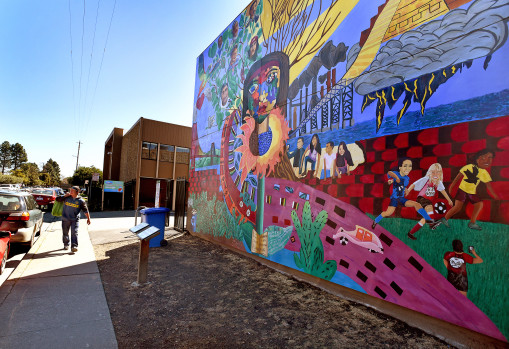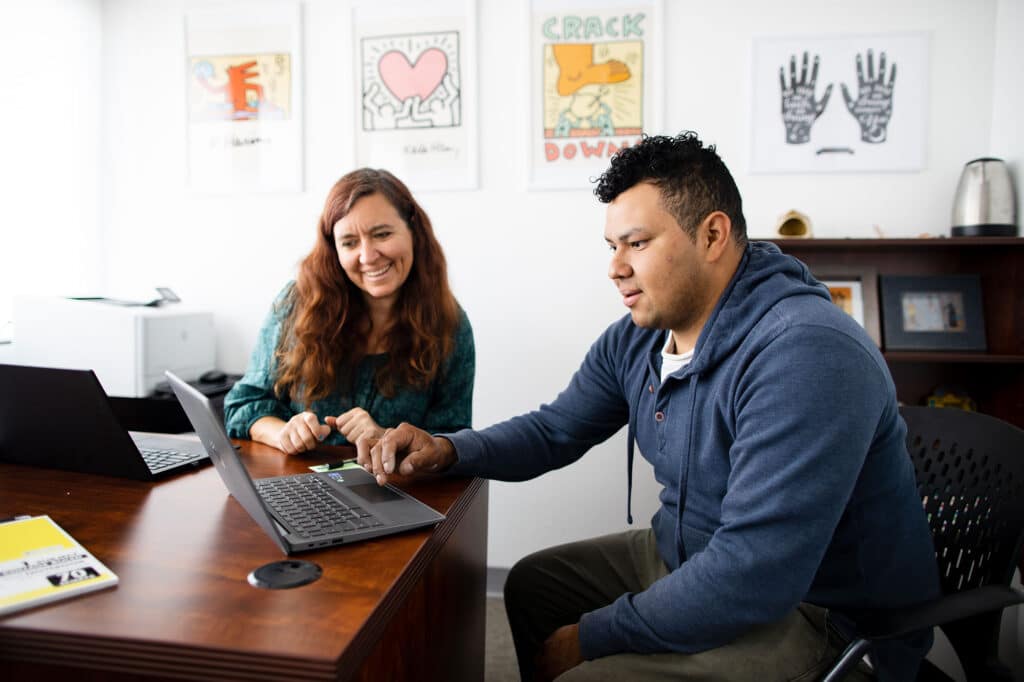Canal Alliance: Supporting Latinos and Immigrants in Marin County Since 1982
Comments Off on Canal Alliance: Supporting Latinos and Immigrants in Marin County Since 1982By Nestor Schnasse, MCBA. / (Read Article Here)

The current administration’s aggressive deployment of Immigration and Customs Enforcement (ICE) agents across the country has resulted in thousands of people being detained in its facilities, unlawful deportations, overwhelming fear, and now massive protests in Los Angeles. Thousands of National Guard members have been ordered to LA to silence protesters, and over our governor’s objection. The situation seems to worsen each day and strikes at the core of what this great Nation has stood for. As the son of immigrants, I wanted to highlight the important work of local heroes supporting vulnerable members of our community right here in Marin.
Canal Alliance exists to break the cycle of generational poverty for Latino immigrants and their families, serving clients in Marin since 1982. With laws around immigration in ongoing flux under the current presidential administration, I took a moment to catch up with Canal Alliance’s director of marketing and communications, Isabel French, to understand how the agency’s client community is weathering the current climate, and what lawyers — and fellow community members — can do to support immigrants and Canal Alliance’s work in these uncertain times.
Ms. French explained that, since Canal Alliance’s founding, the agency has evolved in response to the changing needs of Marin’s immigrant and Latino communities. This evolution has been shaped by the voices of its clients, the realities they face, and the agency’s unwavering commitment to social justice. More than four decades into this work, Canal Alliance’s approach now pairs high-impact direct services with bold, place-based initiatives to address the root causes of inequity, understanding that lasting change requires both: strategic direct services and systemic solutions. (To learn more about the services and programs Canal Alliance offers, you can visit their website canalalliance.org.)
When I asked French how one could support immigrants right now, and how Canal Alliance has responded to a wave of new laws under the current government, she spoke about Canal Alliance’s nimble approach to leadership and about education. “Canal Alliance has always been an adaptive agency, responding to the realities and expertise of the communities we serve,” she said. “And, since Trump’s inauguration, this adaptability has continued to be central to our work. There is so much fear in immigrant communities right now, not just here in Marin, but across the country.” To help lessen this fear, French says that Canal Alliance has developed and broadly distributed accessible “Know Your Rights” educational videos and materials to immigrants, allies, and partner agencies across the county, to promote education and foster safety. Available in English and Spanish, the videos and materials help immigrants and allies prepare for a possible encounter with ICE, and guide the development of a plan, particularly important for mixed-status families. These Know Your Rights resources are readily available on Canal Alliance’s website and via WhatsApp; more details can be found here.
“We all have a role to play in defending the rights of immigrants right now,” French urged, noting that, from Canal Alliance’s perspective, education about immigrants’ rights is as important for allies of immigrants as it is for immigrants themselves. “Rights education fosters safety,” she shared, also recommending those hoping to do their part to read a recent write up by the agency’s CEO, Omar Carrera: Seven Ways to Be an Ally to Immigrants.
Please follow the links above to learn more. I’ll touch briefly on just a few items here:
Get educated about immigrant rights and resources. The Know Your Rights article linked above is excellent. You may also want to visit the Immigration Legal Resource Center (ILRC), ACLU, or UnidosUS linked in Mr. Carrera’s article.
Guide concerned friends to plan for the worst with planning tools and a childcare affidavit in many cases. ILRC provides a very thorough toolkit that contains practical advice on what documents to carry or not carry, how to handle an ICE encounter or traffic strop, and much more. Some resources are simple, like a printable “red card” with prepared responses for asserting constitutional rights to remain silent, to consult with an attorney, or not to consent to an unlawful search.
Guide friends to connect to resources through Canal Alliance’s WhatsApp resource using the Know Your Rights link.
Volunteer for Canal Alliance’s core programs, from food pantry and job-coaching to citizenship and tax prep assistance. If you are unable to volunteer, consider making a donation.
Speak out. Teach others what you have learned in the many circles to which you belong. As more people become aware of these resources, the likelihood families in need will find meaningful support increases.
“Whether you choose to pursue knowledge, share knowledge, volunteer your time, or help mixed-status neighbors or friends prepare a family plan, it all matters,” French shared. “It all makes a difference.”




